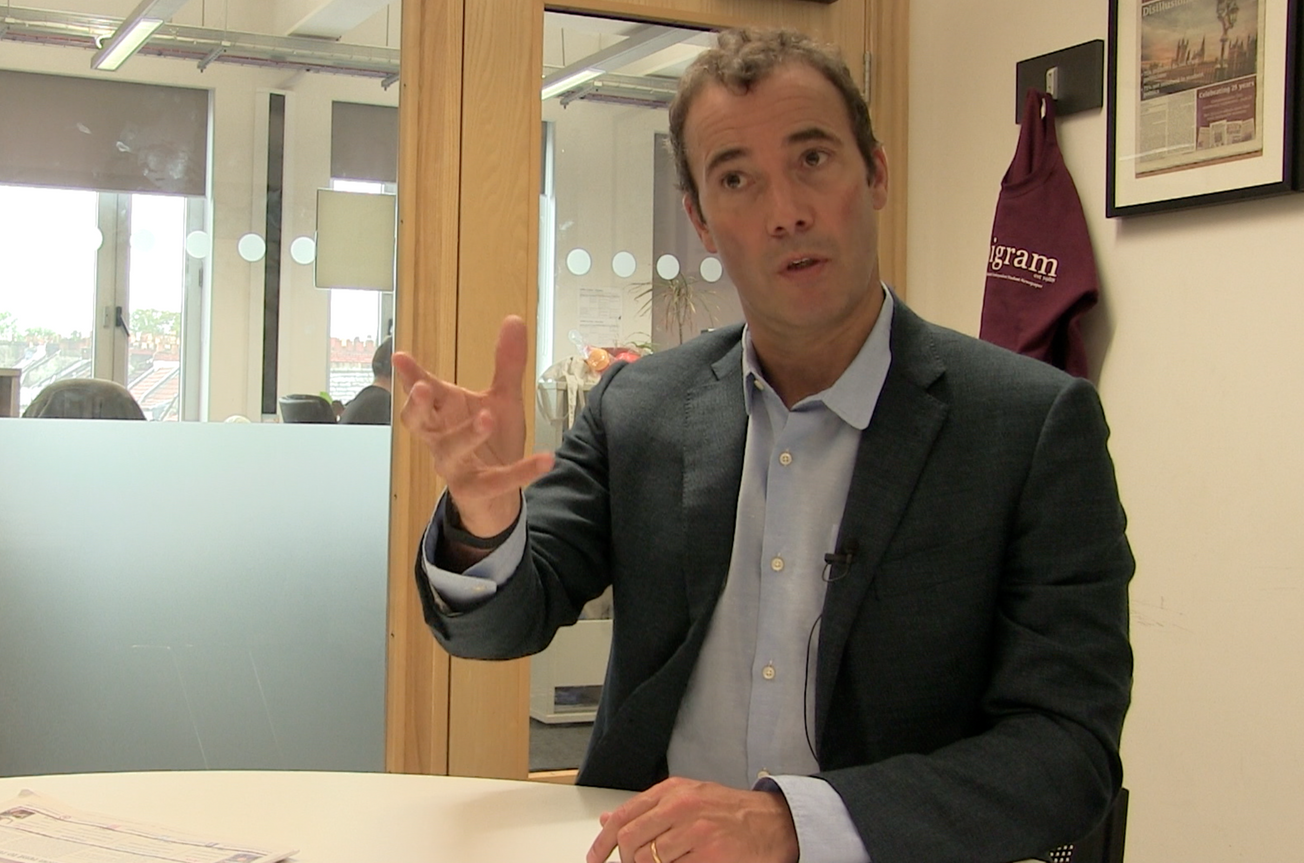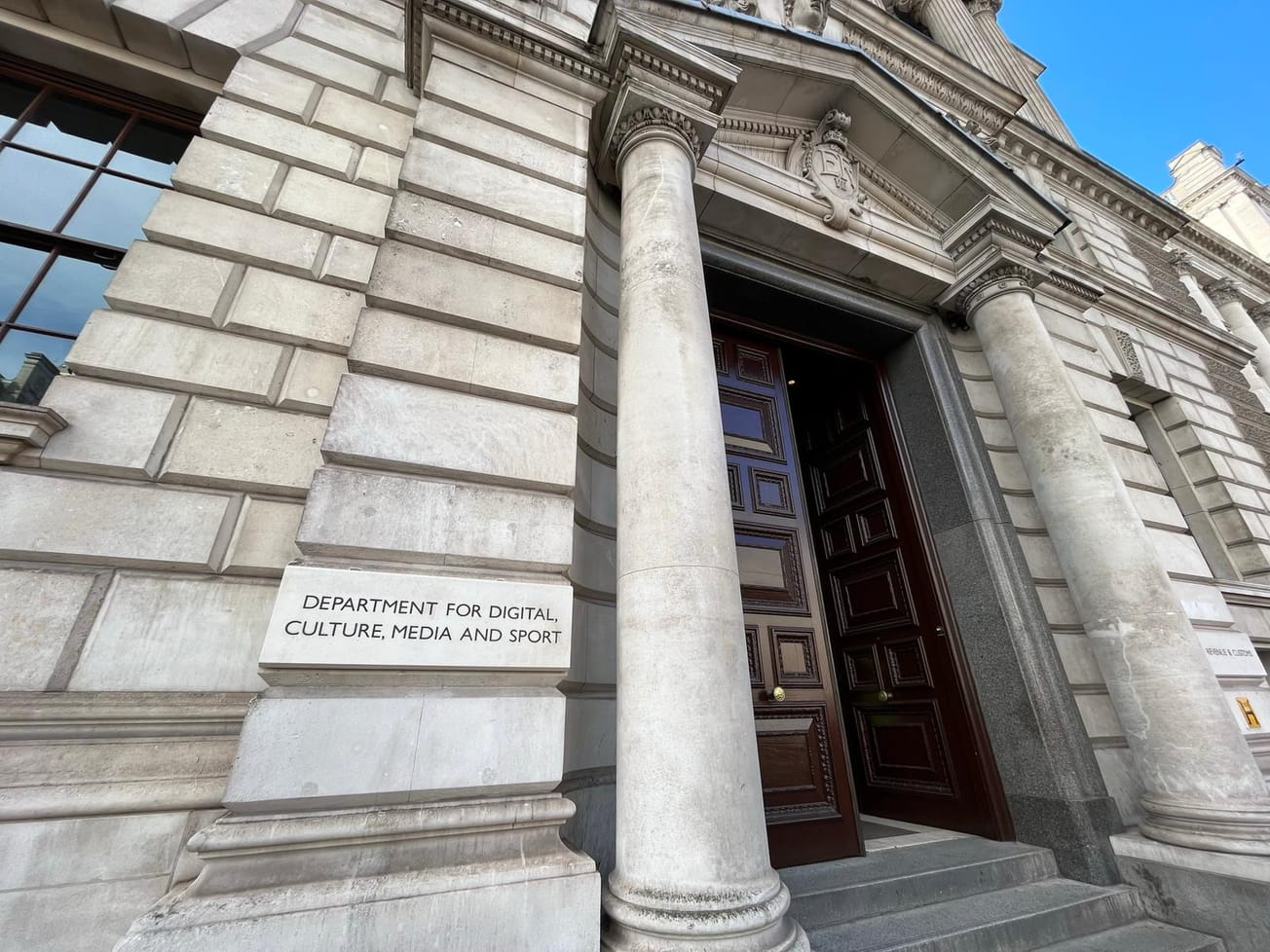By Ed Southgate, co-Editor-in-Chief & Ollie Smith, Features Editor
We sit down with the former Editor of The Telegraph for a deeper insight into the world of journalism and the current political climate
As a former editor of The Daily Telegraph and now CEO of Dow Jones, William Lewis is one of Epigram’s most successful alumni and so as part of our training week we invited him to give a talk. Afterwards he sat down with us to give some insights into his personal experiences of journalism and his views on current politics.
After wishing us a happy 30th birthday he tells us a bit about his time here:
‘I started I think in Epigram’s first year and walked into an office that looked a bit like this … and met someone called James Landale who was the editor and felt very worried because everyone looked like they knew what they were doing and I literally did not know what I was doing but I said I think I want to be a journalist and can I help and bit by bit I began to get involved … bit by bit I did some sports reporting in particular which was fun and began to cut my teeth in journalism and began to realise this was what I wanted to do for the rest of my life.’
What does he think the importance of student media is and why should people should get involved?
‘One it is really important that we find a way for the next generation to come through to ensure that the public is served up with the information it requires so we need people to learn journalistic skills and that starts even before university but definitely at university so it is critical what you are doing and the skills you are learning that you can then take on to work elsewhere after university.
‘secondly, look there are fantastically important stories at university. Every university has its own challenges, issues that need exploring and dealing with and this is an incredibly important platform to do that on’
What would his advice be for young people trying to break into journalism?
‘it is really an exciting time in the news industry’
‘it has never been a more exciting time story wise whether it is president trump, whether it is Brexit, whether it is the changing environment these are incredibly important stories for people to report on and to publish, so incredible stories but also now people are realising in importance of real news of accurate news and this is a really great thing’
‘my main message is for anyone thinking about journalism is it has never been a better time to be thinking about getting in to that industry and also its an industry for everyone. It is an industry for men, for women, for people of different ethnic backgrounds, for people with different opinions. It is not a profession it is a trade and we welcome everyone into that because the important thing is we serve up the right information for the reader.’
What are his views on no-platforming within universities?
‘I think it is really really vital that people can come to a place of learning like this and say things that you don't agree with and that you are able to say I do not agree with you but we can have a debate about it. I think it is incredibly sad that people are not allowed to say things either because laws have changed or because they are seen as being not acceptable. If we cannot do it at university we cannot do it anywhere else in life. You need to have these debates here so I am all in favour of the ability for people to come onto campus to say things that people find difficult and disagree with so we can have that free speech.’
‘it is vital that people who have inappropriate opinions that are inaccurate are heard and that they are not bottled up but exposed to daylight. The most important way to stop people believing in things that are wrong is to expose those ideas for what they are. The more you hide things away and people are able to develop these things in private and they never get exposed then they have real damage so we have to for all sorts of different reasons insist on free speech.’
What does he think led to Brexit and Trump? Are they related?
‘I am not sure if they are related. There may be underlying issues that a similar and it is very very complicated so I do not want to sound trite about this if you were to pin-point one thing that lies behind quite surprising electoral decisions, let us put it that way, whether it is in the US or UK or elsewhere it is because there has been such disruption in both societies in both the USA and the UK that did not have a political voice’
‘if you take the UK, for example, certainly if you take the immigration debate for years and years it was clear to ordinary folk that there was an influx of immigration coming to our country … amongst the political establishment this wasn't discussed and it was seen as being difficult conversation to be had but back in the real world people really concerned about it and they were concerned about the lack of preparation that had gone into people’s communities being changed, the pressures on schooling on hospitals on housing and so lo and behold when the moment came for those people to teach the politicians a lesson they voted for Brexit’
‘similarly in the US for many many years people have been, deep into America, concerned about economic growth, about the lack of jobs, about regulation being increased, about the political establishment focusing on things they thought were important … so when the moment came for ordinary people to teach the establishment a lesson, as recognised or seen in Hilary Clinton, they did that.’
‘If you asked me to say what is one thing you take out of it, it is that if you don’t listen to ordinary people’s concerns it will cause you damage’
Would a second Referendum be counter-intuitive and damaging?
‘it is really tricky … Because there was a clear margin of victory for Brexit and the debate was aired and lies were told on both sides yet here we are and obviously the negotiations appear to have been handled in a shockingly bad way’
‘My own belief at this stage is that people will find it very difficult to understand why there is going to be another vote that in a way is seen to stymie what the public really wanted so the public really do want there to be greater controls at the borders, it is a clear majority view. The people really do want politicians to get back and concentrate on what they see as being important which is for example the health service and education. The people are concerned that Brussels is Bureaucratic that it doesn’t care about what happens in the UK. I think it could be really quiet destructive if there’s then a second checking vote that goes ahead but let’s see. The trouble is with this referendum stuff is once you go down that route the genies out of the bottle. But I do think millions of people up and down the country will see it as an establishment plot to stop Brexit happening.’
Does he think referendums are fundamentally a good idea or damaging?
‘In the context of the current broken political system they are really quite dangerous so I think there is a lot that is wrong with our political system. I would ask you what the House of Lords exists for and the fact that there are unelected people who pontificate on their behalf or our behalf and get the chance to affect laws just seems a bit odd to me. I would question the first party post electoral system that seems to cause governments to be elected even though they haven’t won a majority of the votes.’
‘The political parties themselves are not fit for purpose, there is an anti-Semite running the Labour Party which is completely shocking, there is a seemingly hopeless person running the Conservative Party who happens to also be the Prime Minister and Vince Cable I think wants you to have his job and you do not even need to join the Lib-Dems to get that so political parties themselves are now broken as well. If into this sort of mess you then chuck a referendum about whether we should leave the EU or not what were you expecting?’
‘I think the whole system needs radically looking at and fundamentally, and it cannot just be me who feels this, we need a written constitution. I do not trust these people any more, I do not trust the establishment any more to do the right thing on behalf of ordinary people, I have lost my trust in them. I want it all written down so these people cannot continue to ruin our country and I think fundamentally that is what is required here’
Featured image: Epigram/Cameron Scheijde
Do you agree with Lewis' views? Let us know...









